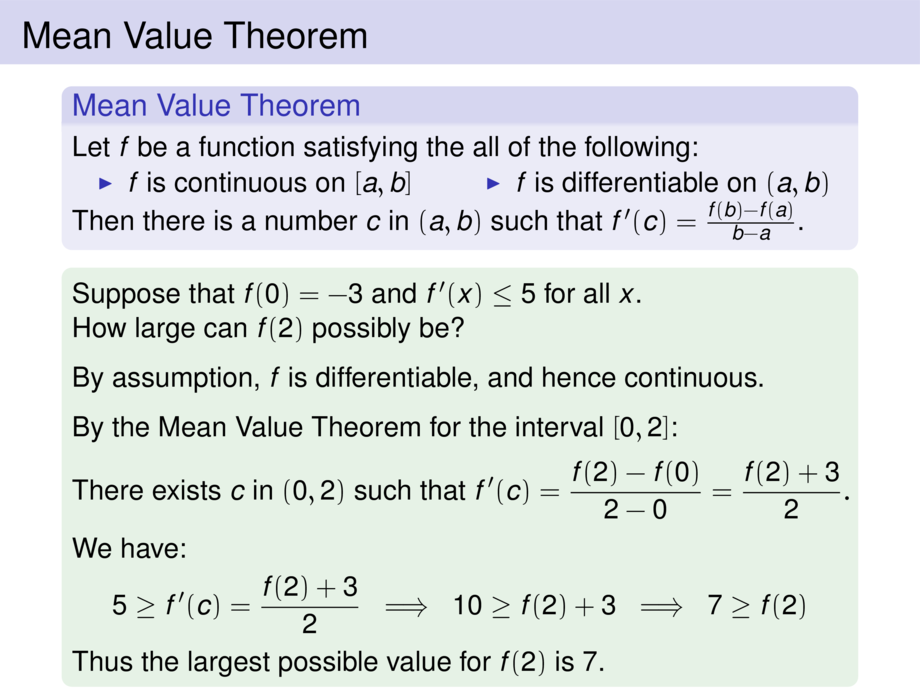



































































































56/66
\begin{frame}
\frametitle{Mean Value Theorem}
\meanvalueshort
\begin{exampleblock}{}
Suppose that $f(0) = -3$ and $f'(x) \le 5$ for all $x$.\pause\\
How large can $f(2)$ possibly be?
\pause\medskip
By assumption, $f$ is differentiable, and hence continuous.
\pause\medskip
By the Mean Value Theorem for the interval $[0,2]$:
\begin{talign}
\text{There exists $c$ in $(0,2)$ such that } f'(c) = \frac{f(2) - f(0)}{2-0} \mpause[1]{= \frac{f(2) + 3}{2}.}
\end{talign}
\pause\pause
We have:
\begin{talign}
5 \ge f'(c)\mpause[1]{ = \frac{f(2) + 3}{2}}
\mpause[2]{\;\implies\; 10 \ge f(2) + 3}
\mpause[3]{\;\implies\; 7 \ge f(2)}
\end{talign}
\pause\pause\pause\pause
Thus the largest possible value for $f(2)$ is $7$.
\end{exampleblock}
\vspace{10cm}
\end{frame}

